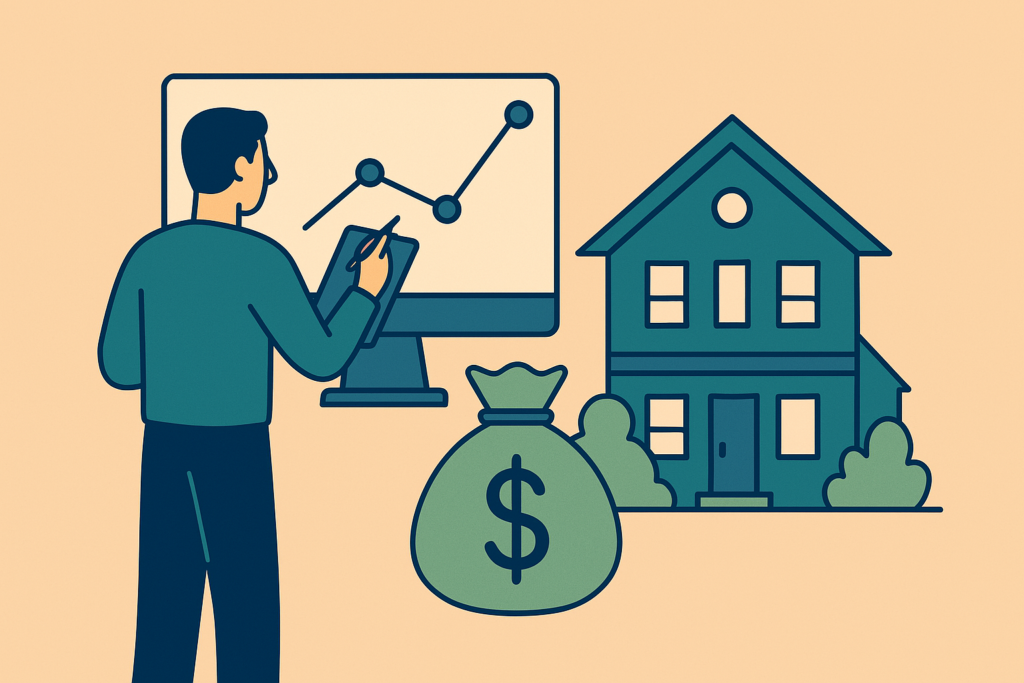Tax-Assessed Value vs Market Value: What California Homeowners Need to Know
If you’re a homeowner in California, you’ve probably seen a few different numbers tied to your property. There’s the property tax, the market value, and then the asking price—and let’s be honest, trying to make sense of them can feel overwhelming—so which one really matters when you’re thinking about selling? And how can you be sure you’re not leaving money on the table?
We’re here to clear it all up. At Osborne Homes, we’ve helped thousands of Californians sell their homes quickly and simply. We understand the emotional weight of selling, especially when you’re trying to figure out what your home is truly worth. This guide will walk you through tax-assessed value vs asking price so you can move forward with clarity and confidence.
What Is Tax-Assessed Value?
The tax-assessed value is the number the county uses to figure out how much you owe in property taxes each year. It’s based on a formula that looks at things like your home’s size, age, and location. The property tax value doesn’t factor in upgrades, curb appeal, or what buyers in your area are actually paying.
Because of Proposition 13, this number usually stays lower than your home’s true market value. In fact, unless you’ve sold or made major improvements, your assessed value can only increase a small amount each year. That’s great for keeping taxes predictable, but it also means this number often doesn’t reflect what your home is really worth.
And while it matters for tax bills, it doesn’t matter to buyers. No one’s making offers based on county records. They’re looking at the market, not your tax assessment. That’s why understanding the difference between property tax assessment vs market value is so important when you’re thinking about selling.
If you’re curious about how the system works behind the scenes, the California State Board of Equalization offers a helpful guide that explains assessed values and property tax basics in detail.
What Is Market Value?
A home’s market value is what a buyer would actually pay for it today, not what’s printed on the tax bill. It changes based on what’s happening in the real estate market: interest rates, demand, inventory, and recent sales of similar homes all play a part. It’s a real-time reflection of your home’s worth in the eyes of buyers.
Unlike your assessed value, which barely moves from year to year, market value is always shifting. That’s why this number can often be tens or even hundreds of thousands of dollars higher than what the county says your home is worth, and that’s completely normal.
At Osborne Homes, market value is what we focus on. We use real-time data like comps, neighborhood trends, and the current condition of your home—not outdated formulas. That’s how we give homeowners a fair, fast cash price based on reality, not guesswork.
What Is the Difference Between Assessed Value and Market Value?
It’s completely normal for your tax-assessed value and market value to look very different and that’s because they serve two entirely separate purposes. Understanding the difference between assessed value and market value can help you avoid common pricing mistakes and sell with more confidence.
The property tax value is used solely to calculate your property taxes. It’s based on general guidelines from the county and rarely reflects the true condition or upgrades of your home. In contrast, market value is shaped by buyer demand, interest rates, and recent home sales in your area.
Assessed Value vs Market Value: Key Differences
| Comparison | Assessed Value | Market Value |
| Main Use | Used by the county to determine your property tax bill. | Reflects what buyers would currently pay for your home. |
| Who Sets It | Calculated by your local tax assessor’s office. | Determined by real estate trends and buyer activity. |
| How It’s Calculated | Based on your home’s condition, location, and sales history. | Influenced by demand, interest rates, and the local economy. |
| How Often It Changes | Typically updated once a year, depending on your county. | Can shift frequently based on current market conditions. |
| When It’s Reviewed | Reviewed annually for tax purposes. | Evaluated when selling, refinancing, or getting an appraisal. |
| Why It Matters | Impacts how much you’ll owe in property taxes. | Affects your selling price and how much profit you can make. |
Where Does Asking Price Fit In?
Now let’s talk about tax-assessed value vs asking price. The asking price is what you, or your agent, decide to list your home for—but that doesn’t mean buyers will pay it.
In many cases, the asking price is influenced by emotion. Maybe you poured years of hard work into your home or believe that your updates should raise its value. While that’s understandable, the reality is that buyers look at comps and condition, not memories.
When your asking price is too far above market value, it can cause your listing to sit, go stale, and eventually sell for less. If you’re comparing your tax-assessed value vs asking price to gauge what you should sell for, take a breath. Neither one tells the full story. Osborne Homes can help you focus on the one number that truly matters—the amount today’s buyers are ready to pay for your home.

How Osborne Homes Determines a Fair Sale Price
When we buy your home, we don’t rely on guesswork or outdated tax assessments. We use real market data and a clear, straightforward process to determine a fair price. No repairs, no delays, just a simple, honest path to getting it sold.
We Evaluate Real-Time Market Conditions
Our team carefully studies recent comparable sales, market trends, buyer demand, and your neighborhood’s activity. We also take into account your home’s size, layout, and condition. The result? A fair sale price that reflects what your home could sell for right now, not months ago.
No Repairs or Cleanup Needed
We’re not concerned about chipped paint, broken fixtures, or clutter. We buy houses exactly as they are, no matter if they’ve been lived in recently or neglected for years. You don’t need to spend time or money fixing anything before we agree on a price.
Forget Commissions or Middlemen
You won’t pay agent commissions, service fees, or hidden charges. There’s no listing, no showings, and no waiting around. Selling to us means you skip the traditional process altogether and keep more of your home’s value in your own pocket where it belongs.
We Make the Process Quick and Clear
Once we agree on a fair price, we move fast. We handle the paperwork, coordinate with escrow, and keep communication open from start to finish. You’ll never wonder what’s next. We keep it simple, respectful, and fully aligned with your timeline.
Get Paid for What Your Home Is Really Worth
Your tax-assessed value isn’t the number that matters when it’s time to sell. At Osborne Homes, we base every purchase on your home’s true market value—the price a real buyer would pay in today’s market. We don’t ask for repairs, cleanup, or commissions. Just a fair, fast cash sale based on what your home is actually worth right now. Skip the outdated numbers and get a deal that reflects real value.
Get My Fair Cash Price


